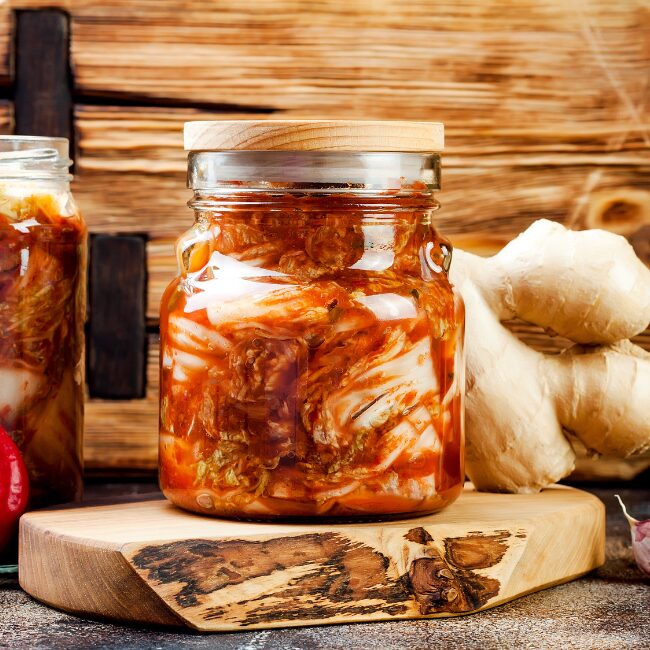
Plant-based chef and writer Jack McNulty shares his top tips and recipes for fermented foods.
Getting started with home fermentation essential equipment:
Steps to begin:
Ingredients: Apples, sugar, water
Process: Ferment apple scraps with sugar water for 3-4 weeks, then strain and continue fermenting for 3-4 more weeks.
Ingredients: Napa cabbage, radish, green onions, garlic, ginger, Korean red pepper flakes (Gochujang), salt
Process: Cut vegetables, mix with spices and salt. Pack in a jar and ferment for 1-5 days.
Ingredients: Tea, sugar, kombucha starter culture (SCOBY)
Process: Brew sweetened tea, add SCOBY, ferment for 7-10 days, then bottle for carbonation.
Ingredients: Cucumbers, water, salt, spices (dill, garlic, peppercorns)
Process: Pack cucumbers in jar with spices, cover with salt brine. Ferment for 1-4 weeks.
Ingredients: Plant milk, water kefir grains
Process:
Ingredients: Plant milk (soy, almond, coconut), probiotic capsules or plant-based yogurt starter
Process:
Ingredients: Cabbage, salt
Process: Shred cabbage, mix with salt, pack tightly in a jar. Leave at room temperature for 3-4 weeks.
Ingredients: 50g whole wheat flour (daily for 5-7 days), 50g room temperature water (daily for 5-7 days)
Process:
Maintaining the starter:
Ingredients: Flour, water, salt, sourdough starter
Process: Mix ingredients, let dough rise, shape, and bake. Maintaining the starter is key.
Safety tips:
Troubleshooting common issues: